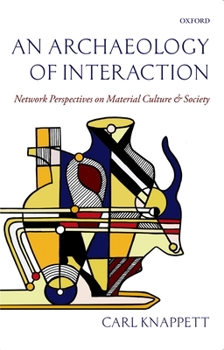An Archaeology of Interaction: Network Perspectives on Material Culture and Society
Select Format
Select Condition 
Book Overview
Think of a souvenir from a foreign trip, or an heirloom passed down the generations - distinctive individual artefacts allow us to think and act beyond the proximate, across both space and time. While this makes anecdotal sense, what does scholarship have to say about the role of artefacts in human thought? Surprisingly, material culture research tends also to focus on individual artefacts. But objects rarely stand independently from one another they are interconnected in complex constellations. This innovative volume asserts that it is such 'networks of objects' that instill objects with their power, enabling them to evoke distant times and places for both individuals and communities. Using archaeological case studies from the Bronze Age of Greece throughout, Knappett develops a long-term, archaeological angle on the development of object networks in human societies. He explores the benefits such networks create for human interaction across scales, and the challenges faced by ancient societies in balancing these benefits against their costs. In objectifying and controlling artefacts in networks, human communities can lose track of the recalcitrant pull that artefacts exercise. Materials do not always do as they are asked. We never fully understand all their aspects. This we grasp in our everyday, unconscious working in the phenomenal world, but overlook in our network thinking. And this failure to attend to things and give them their due can lead to societal 'disorientation'.
Format:Hardcover
Language:English
ISBN:0199215456
ISBN13:9780199215454
Release Date:October 2011
Publisher:OUP Oxford
Length:264 Pages
Weight:1.25 lbs.
Dimensions:0.8" x 6.2" x 9.3"
Customer Reviews
0 rating





